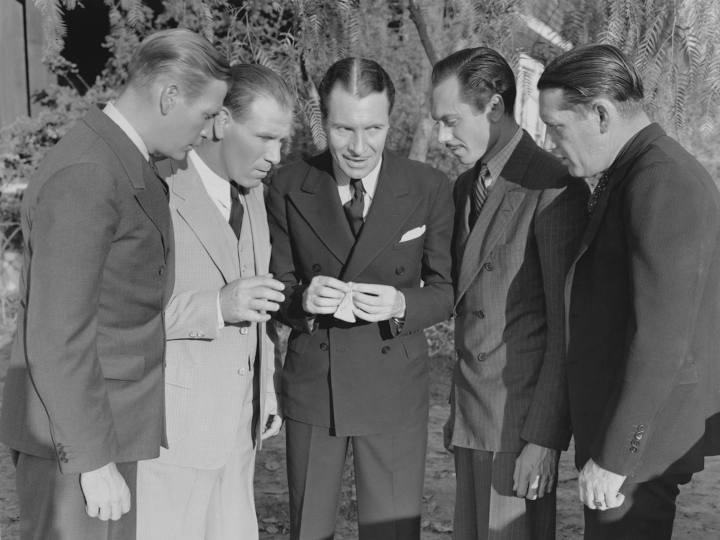Is trade association membership exposing your company to risk?
Speedread — 2021 brings greater exposure for trade association members for cartel fines imposed on the trade association.
The Hungarian Competition Authority (HCA) has been investigating trade associations on a regular basis – over 50 investigations were closed in the last 25 years - in virtually all areas of the economy (most recently banks, pesticides, IT, manpower). The large number of cases indicate that trade association activity remains a challenge for competition compliance efforts, and will retain the attention of the HCA in the future.
This Newsletter explains the new fine enforcement regime, what companies can do to reduce their exposure, and shows recent examples of the HCA’s enforcement practice. To note:
- The new fine regime follows a step-by-step structure, which enables the HCA to collect the fine not just from a trade association involved in a cartel, but also from its members in several steps.
- The system can result in a member company paying the fine instead of others, especially if the company’s representative was on the board of the trade association at the time of the infringement.
- Trade association members can escape liability only if they can prove their innocence. For a successful defence, it is increasingly important for companies to ensure that their employees are aware of and properly follow the “do’s and don’ts” of trade association related activity.
Effective internal processes should be created and maintained to prevent, detect and address in a timely manner any potential competition issue.
Who pays the competition fine imposed on the trade association?
Scrutinizing the activity of trade associations and imposing a fine on them for anti-competitive decisions has been a standard practice of the HCA. In this case the trade association is primarily liable for fine payment. Until now, trade association members who participated in the decision-making and were named in the HCA decision would become secondarily liable for any unpaid fine jointly and severally.
As from 1 January 2021, a more refined tier system applies to cartels taking the form of a decision by or action of a trade association:
- First, the trade association must pay the fine imposed on it, from its own funds.
- Second, if the trade association fails to pay the fine and enforcement is unsuccessful, the HCA may oblige the trade association to seek special payment from its members.
- Third, to the extent the fine remains unpaid, the HCA may oblige those members whose representatives participated in the trade association’s cartel decisions to pay the fine, on a joint and several basis.
- As a fourth step, if the third step is not successful, the HCA can oblige the trade association members so named in the decision who were active on the market affected by the cartel, to pay the outstanding fine, on a joint and several basis.
Generally, the fine imposed by the HCA are immediately enforceable, which triggers the four-step-process immediately, regardless of whether the HCA’s decision is appealed.
The new four-step-system is part of the implementation of Directive (EU) 2019/1 of the European Parliament and of the Council of 11 December 2018, also called the “ECN+ Directive”, which aims to increase effective competition law enforcement by enabling closer cooperation between national competition authorities and the Commission, and by harmonizing certain procedures, such as fine enforcement.
The impact for businesses and how they can prepare?
Awareness of trade association activity is particularly important because members can find themselves in a situation that is difficult to control. In order to escape potential liability for competition law infringements or for fine payment, businesses should generally ensure that they have appropriate processes in place to secure competition compliance, and to detect and promptly address any potential issues. For trade association memberships specifically, companies may prepare by keeping the following basic checklist in mind:
- track trade association memberships of the company and officer positions held by employees;
- train employees, especially those who participate in trade association meetings, to ensure compliant behaviour and that they can recognize potential competition issues (do’s and don’ts);
- monitor trade association meetings and decisions;
- take appropriate and timely action if necessary.
Recent trade association related HCA activity
Recent HCA decisions show that the HCA has been continuously investigating trade association activity in the last few years, and such activity was found to be unlawful in many cases. In its last press release on this subject from December 2020, the HCA reminded the public of the behavioural guidelines the HCA issued in 2011. This indicates that the HCA expects compliant behaviour from trade associations and their members and will continue to scrutinize trade association activity. We summarize below key elements of relating recent HCA decisions:
Vocational trainers (2015). The HCA investigated the association of vocational trainers between 2013 and 2015 for allegedly setting a minimum recommended price in the applicable code of ethics and general terms and conditions applicable to driving school trainers. The procedure ended with commitments and without fine, and no infringement was established.
Banks (2016). The HCA investigated the Hungarian Banking Association (“HBA”) Between 2012 and 2016 for operating a database for over 10 years, into which member banks regularly uploaded individual information that constituted trade secret. The HCA finally held that the BankData database was suitable for restricting competition between banks, because it enabled a particularly wide range of individual data sharing, which affected the dimensions of price, quality and innovation competition. The HCA held the HBA (but not the banks) liable for the infringement, imposed a 4 billion HUF (approx. 11 million EUR) fine on the HBA, and named the banks as secondarily liable for the fine payment. The reviewing courts subsequently annulled the HCA’s decision.
Pesticide and fertilizer traders (2018). The HCA investigated the Professional Association of Pesticide and Fertilizer Traders and the Association of Pesticide Manufacturers and Importers and twenty-one member companies between 2013 and 2018. The HCA suspected market sharing and price fixing by standardizing purchase and sales conditions. After a 5-year-investigation the HCA terminated the proceedings in the absence of sufficient credible evidence of the infringement.
Furbishers (2018). Between 2014 and 2018 the HCA investigated the practice of the furbishers’ association on maintaining fee regulation that included standard prices, and calculation methodology and structure of other fees for nearly 20 years. The investigation lasted for 4 years, and ended without a fine, but the HCA obliged the association to amend its code of ethics, to inform its membership directly that the former practice was unlawful, to provide related education to its members and to develop a compliance program.
Office technology and cash register maintenance service providers (2019). Between 2015 and 2019 HCA investigated the National Industrial Association of Office Technology and Cash Register Services, and found that the trade association set recommended prices for the annual review of online cash registers introduced in 2015 and communicated those prices to its members. The HCA found that members engaged also in parallel price discussions and the associated distributor fee, and most of the agreed prices were actually applied. The HCA imposed a total fine of 70 million HUF (approx. 190,000 EUR) for the two infringements and named the undertakings involved in the decision as secondarily liable for the fine imposed on the association.
Personnel consultants (2020). The HCA investigated the Hungarian Association of Personnel Consultants between 2017 and 2020 and discovered that the internal policies of the trade association set a minimum fee requirement and other terms that members should apply towards customers for hiring and manpower leasing. The HCA imposed a fine of 1 billion HUF (approx. 2.7 million EUR) on the association, and established the underlying and joint and several liability of its members for the payment of the fine in proportion to their turnover in the preceding year.






